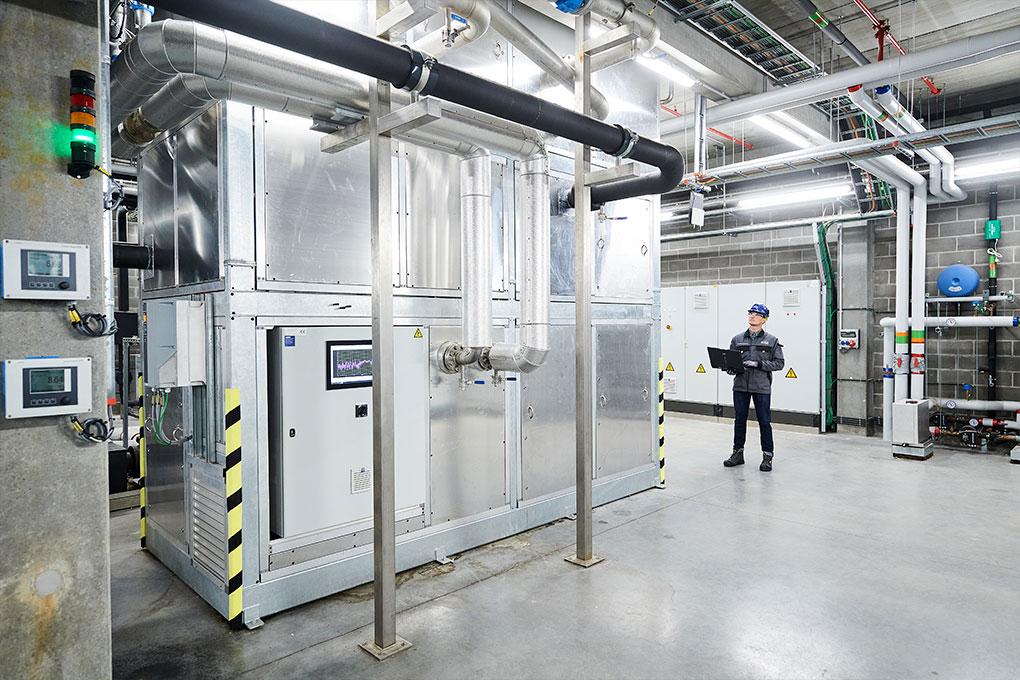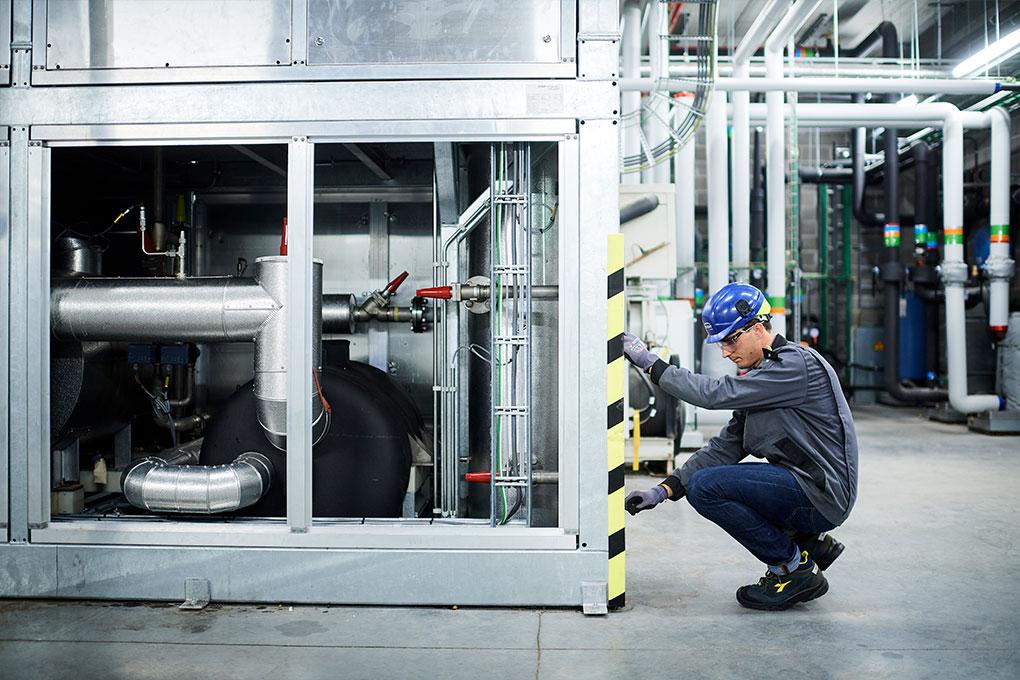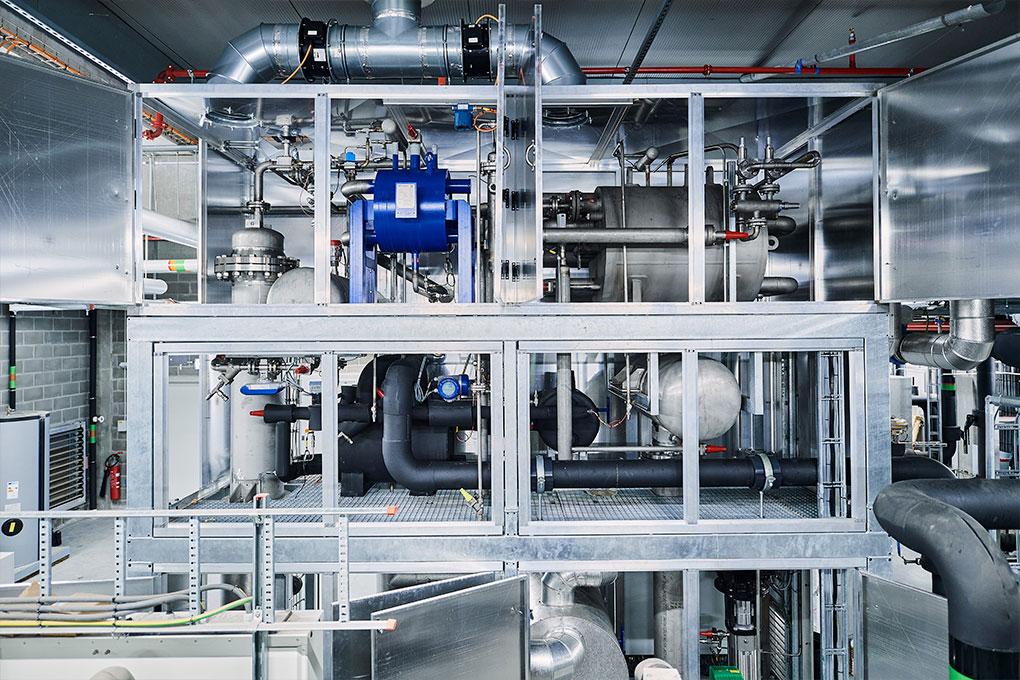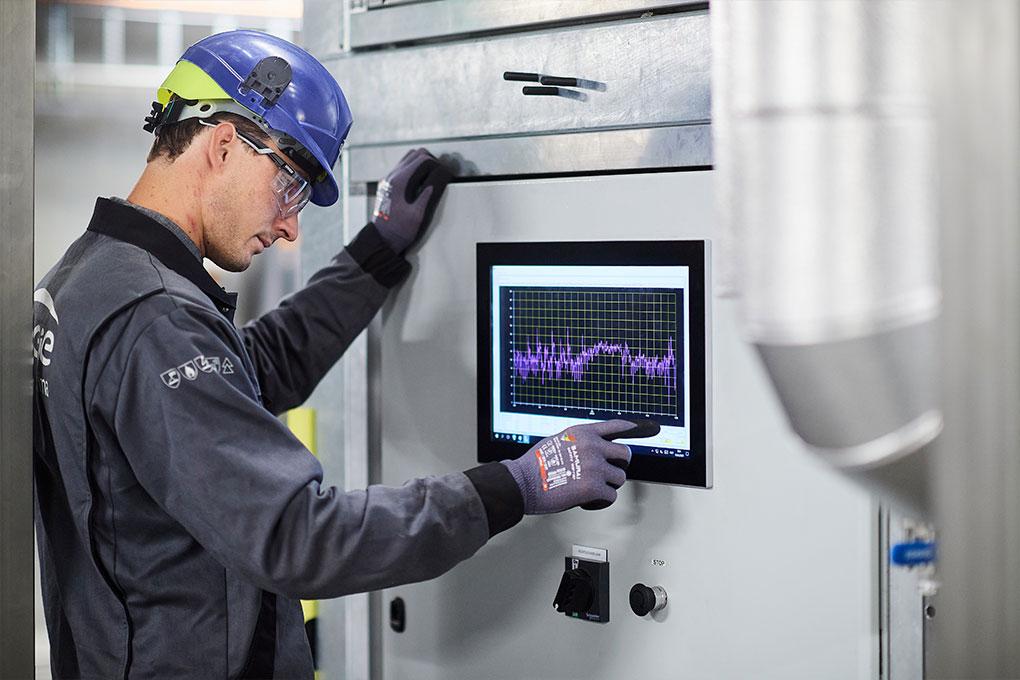EQUANS has installed a water-ammoniac absorption-cooling machine (ACM) at the Alpro NV production site in Wevelgem. The appliance recovers heat from the production process and converts it into cold.
Manufacturers are facing enormous environmental and competitive challenges. EQUANS is supporting companies in their transformation by providing full solutions, which guarantee and improve the performance of their industrial installations without affecting their investment capacity. In doing so, EQUANS has developed a water-ammoniac absorption unit for companies. This low-carbon technology allows residual heat to be recovered in production processes and thermal processes to be optimised.
Negative temperature production
A water-ammoniac cooling machine (ACM) has been installed at Alpro in Wevelgem, part of the DANONE group and a European pioneer in soy products. The thermal machine has been installed as an absorption cooler. The absorption unit at Alpro is designed to provide 200 kW of cold at -2/2 degrees Celsius with a residual heat flow of 90°C (as from 80°C) Celsius from Alpro’s production process.


Operational savings
Thanks to the absorption unit, Alpro is saving EUR 49,000 per year in operating costs. A mechanical compressor – electrically powered – is usually required to produce cold. This consumes about 80% of the total energy required by the cooling system. A water-ammoniac absorption unit can lower these costs, as residual heat is used to power the mechanical compressor. This reduces the maintenance costs compared with conventional heat pumps/cooling for cold production.
Reduction in carbon emissions
Residual heat and inefficient thermal industrial processes are among the worst polluters when it comes to global warming and carbon emissions. Using residual heat below 100°C, the absorption unit that has been installed at Alpro with ultra-low electricity consumption allows the group to reduce their carbon emissions by an annual total of 95 tons. A CO2 reduction that would be even greater if the ammoniac absorption unit were used as a heat pump. Also, the use of ammoniac as a carbonless coolant has the additional advantage of having no impact on global warming.


Technology as a key factor in the low-carbon transition
Ammoniac absorption technology is a key element in the low-carbon transition. Indeed, the ultra-low quality residual heat is very promising for EQUANS and industrial players. This residual heat technology can be used as a primary power input to produce cool and/or heat. This offers Alpro the opportunity to increase its worldwide efficiency and to optimise its consumption of electricity and gas.
